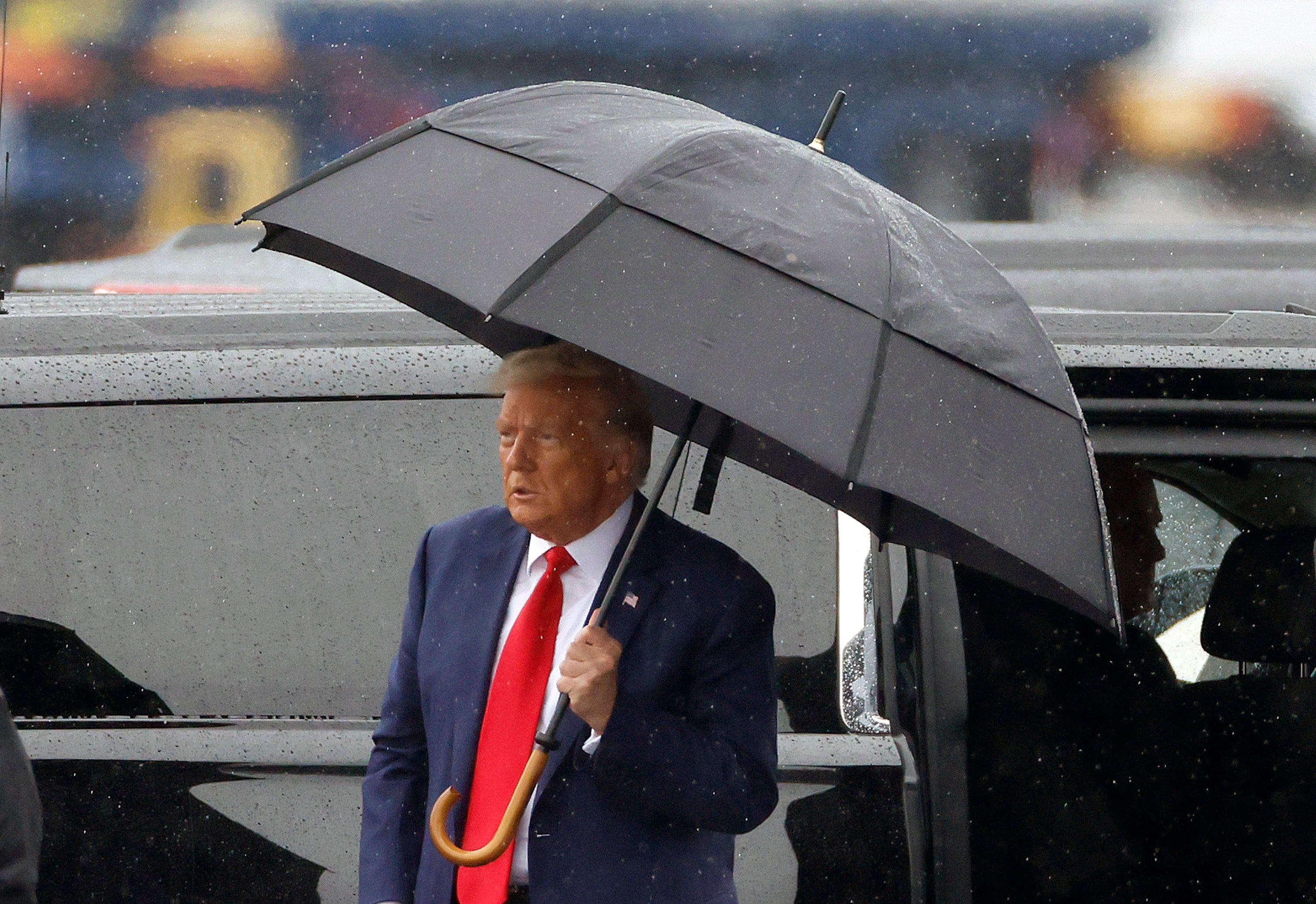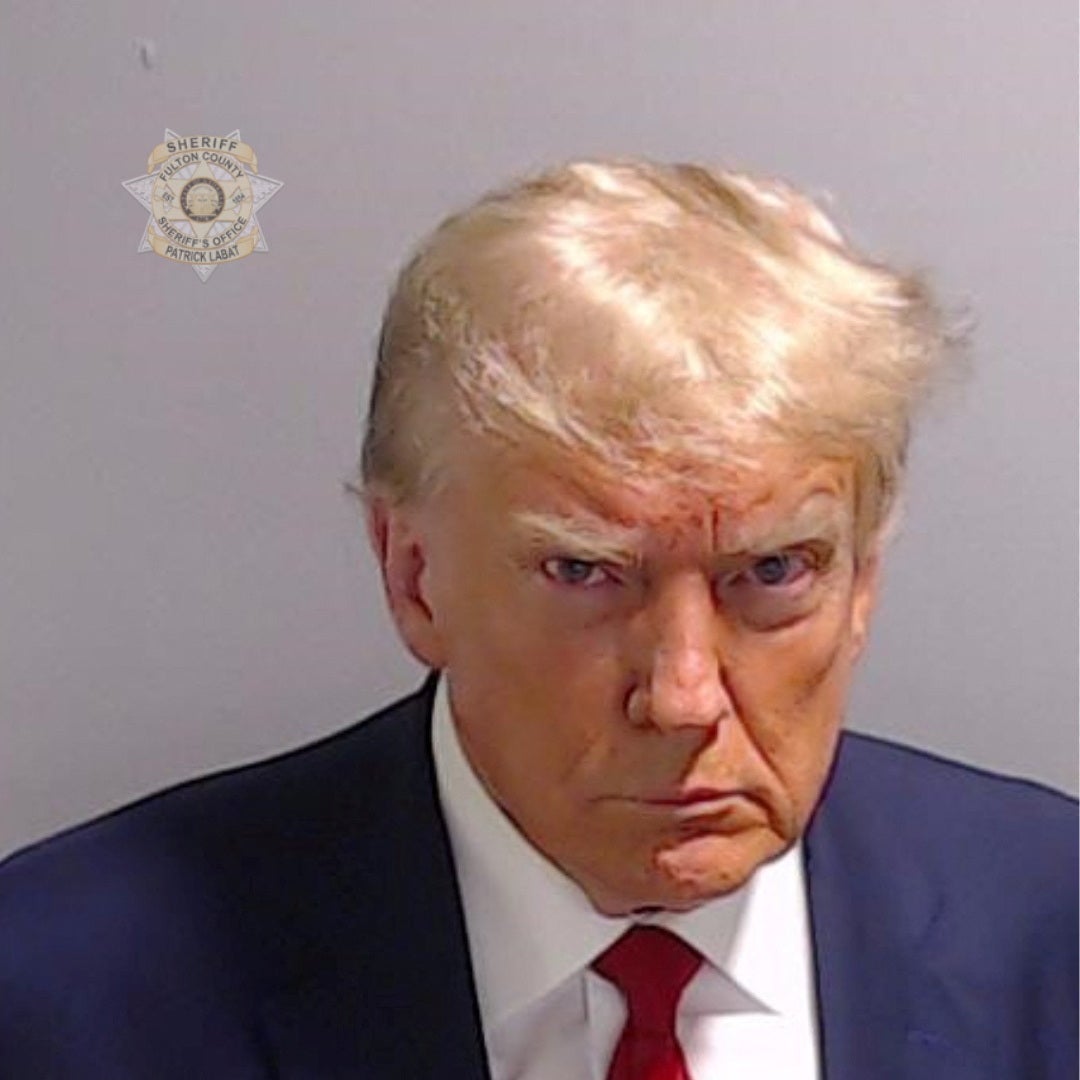Will Donald Trump go to prison – and if not, why?
Former president was convicted on all 34 counts by a jury of his peers in Manhattan
Your support helps us to tell the story
From reproductive rights to climate change to Big Tech, The Independent is on the ground when the story is developing. Whether it's investigating the financials of Elon Musk's pro-Trump PAC or producing our latest documentary, 'The A Word', which shines a light on the American women fighting for reproductive rights, we know how important it is to parse out the facts from the messaging.
At such a critical moment in US history, we need reporters on the ground. Your donation allows us to keep sending journalists to speak to both sides of the story.
The Independent is trusted by Americans across the entire political spectrum. And unlike many other quality news outlets, we choose not to lock Americans out of our reporting and analysis with paywalls. We believe quality journalism should be available to everyone, paid for by those who can afford it.
Your support makes all the difference.Donald Trump has made history as the first criminally convicted US president. He has been found guilty on all 34 counts of falsifying business records as part of a conspiracy to corruptly influence the 2016 presidential election.
He sat emotionless as the jury convicted him on 34 counts of falsifying business records to cover up a payment to porn star Stormy Daniels in the run-up to the 2016 election. Ms Daniels says that they had a sexual encounter in 2006, which Trump denies.
The jury delivered the verdict late on 31 May after deliberating for almost two days at the Manhattan court.
The Republican presidential candidate completed a virtual interview with Manhattan Criminal Court’s probation department on Monday, a mandatory requirement before he is sentenced on July 11 by New York judge Juan Merchan after being found guilty on all counts at his hush money trial last month.
Could Trump go to prison? And what potential prison time is he facing in his three other criminal cases?
The ‘hush money’ case – up to 20 years
The 34 charges were “stepped up” from misdemeanors to class E felonies for the trial because prosecutors alleged the crimes were carried out in an effort to commit or conceal another crime.
Each of the 34 counts carries a maximum sentence of four years in prison, however New York imposes a 20-year sentencing cap for this type of offense.
However, such sentences are usually only doled out in circumstances like previous felony convictions or based on the seriousness of the crime.
Given that Trump has no prior criminal record and his crimes are non-violent, he could face no jail time. Instead, New York Judge Juan Merchan could impose other penalties such as fines, probation or conditional discharge in lieu of jail time.
The prosecution and the defense are still to give their recommendations on sentencing. The defense was due to give its recommendation on June 13. On June 10 Trump sat for a virtual interview with a probation officer as part of the sentencing procedure. Reports said the interview lasted half an hour.
Some commentators have suggested the prosecution could ask for jail time although others have suggested Trump’s age and lack of previous convictions make this unlikely.
The classified documents case – up to 450 years
In one of two federal criminal cases, Trump is charged with willfully retaining secrets and obstructing justice over his alleged mishandling of classified documents after leaving the White House.
In August 2022, the FBI raided Trump’s Mar-a-Lago home in Palm Beach, Florida, and found boxes of classified documents that he should have returned to the National Archives.
In that case, the former president faces a maximum of 10 years in prison per count of willfully retaining secrets and 20 years per count of obstructing justice.

While the latter offence comes with a higher maximum sentence, it is the former which should have Trump more worried. Convictions of wilful and/or reckless retention of classified information frequently result in prison sentences of several years or more. Trump faces more than 30 of those charges.
The trial was provisionally set for 20 May, although Judge Aileen Cannon subsequently suspended it indefinitely and pretrial hearings relating to it continue to be dominated by baffling orders and courtroom spats.
The federal election interference case – up to 55 years
The Justice Department’s second case against Trump accuses him with efforts to overturn the 2020 presidential election in his favor.
In this case, he faces charges of conspiracy to defraud the United States, conspiracy against Americans’ right to vote in free elections and attempting to block the certification of the election results by summoning a mob to attack the US Capitol on 6 January 2021.
Should he be convicted on either point, he faces steep maximum prison sentences for each count, in particular the obstruction of proceeding charges, which carry 20-year maximum terms.

The trial, in this case, was provisionally set for 4 March but it has been plagued by delays while Trump’s “presidential immunity” argument plays out before the US Supreme Court.
The Georgia racketeering case – up to 76.5 years
In Georgia, Trump is charged with his efforts to overturn the 2020 election in the state.

The sprawling RICO case, brought by Fulton County District Attorney Fani Willis against Trump and a string of his allies, is unique in that it is the only case where the charges carry minimum prison terms.
The most serious felony charge – of violating Georgia’s RICO statute (Racketeer Influenced and Corrupt Organisations) – carries a minimum prison term of five years, with a maximum of 20 behind bars.



Join our commenting forum
Join thought-provoking conversations, follow other Independent readers and see their replies
Comments